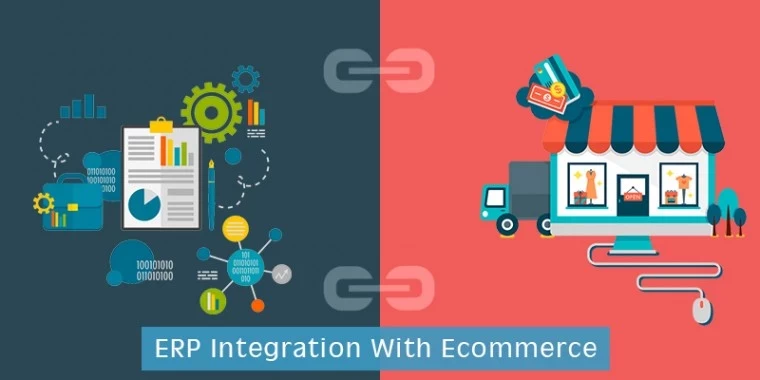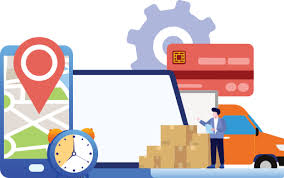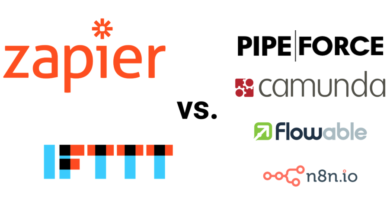7 Best eCommerce Integration Platform: Benefits CRM ERP

Effective ecommerce integration ensures that separate systems have automated, real-time inventory updates, resulting in accurate sales data. It involves ensuring seamless communication and data exchange between different components involved in running an e-commerce business. The goal of e-commerce integration is to streamline operations, improve efficiency, and enhance the overall customer experience.
In the context of e-commerce integration, “integration” refers to data integration, which involves combining data from different sources to provide users with a unified view of that data.
Over the past three decades, businesses have come to realize that the Internet and its associated activities, such as e-commerce, are not only permanent but also essential aspects of life in the 21st century. In other words, it is impossible to separate the “e” from commerce.
What is an Ecommerce Integration?

E-commerce, or electronic commerce, refers to the process of buying and selling products and services using electronic systems, typically over the Internet. It has become increasingly popular since the 1980s and is now considered the most convenient and secure method of conducting business transactions.
E-commerce integration, on the other hand, involves the collection and exchange of data that synchronizes your e-commerce platforms with other applications used in your business, such as customer relationship management (CRM), accounting, and inventory systems. This integration ensures that all the platforms are interconnected in a way that facilitates the seamless transfer of important data from one software to another.
By combining the concepts of e-commerce and integration, e-commerce integration enables businesses to streamline their operations and improve efficiency. It allows for the smooth flow of data between different systems, reducing manual effort and minimizing the risk of errors. Ultimately, e-commerce integration optimizes business processes and enhances the overall customer experience by ensuring accurate and up-to-date data across various platforms.
The process of data sharing in e-commerce integration often involves utilizing an application programming interface (API integration). In a highly competitive e-commerce landscape, businesses must adopt efficient and adaptable models that incorporate accurate product data integration to maintain a competitive edge.
Integrating an e-commerce application with an Enterprise Resource Planning (ERP) system enables wholesalers, manufacturers, and retailers to establish bidirectional information flows between the two systems. This eliminates the need for redundant data entry by allowing data to be entered into a single system and shared across both.
It’s important to note that e-commerce integration should not be confused with e-commerce interfacing. The distinction between the two is straightforward. In e-commerce integration, all relevant data is stored in and accessible from a centralized system. In e-commerce interfacing, data is stored and managed in independent systems that connect and synchronize the data before it can be utilized.
Why is ecommerce integration important?
A well-executed e-commerce integration strategy is closely tied to the growth and profitability of a business enterprise. By implementing e-commerce integration software, businesses can save valuable time and resources by eliminating the need to input product data multiple times across various systems. This improves data accessibility, ensures a seamless flow of information across channels, and ultimately helps increase sales and customer conversion rates. Additionally, integration reduces the errors that can arise from manual data entry, minimizing losses and promoting operational efficiency.
E-commerce integration is important for several reasons:
- Streamlined operations: Integration allows for the seamless flow of data between different systems, eliminating manual data entry and reducing errors.
- Enhanced efficiency: Integrated systems automate processes, such as inventory management and order processing, improving operational efficiency and saving time.
- Accurate and up-to-date information: Integration ensures that data, such as product details and inventory levels, remains consistent across platforms, providing customers with accurate information and minimizing discrepancies.
- Improved customer experience: Integration enables a unified and seamless experience for customers, from browsing to purchasing, enhancing satisfaction and loyalty.
What are the Benefits of eCommerce Integration?

E-commerce integration offers businesses a competitive advantage and financial stability by seamlessly integrating online and offline sales channels with the back-end ERP system. As online sales become more prevalent and physical stores less significant, the demand for e-commerce integration has significantly risen.
Integrating customer relationship management (CRM) software enables businesses to effectively track and manage important customer data, including past behavior and interactions, providing valuable insights for enhancing customer relationships.
E-commerce integrations facilitate the synchronization of critical data across platforms. Depending on the integrated platforms, businesses can access various essential data in one centralized location. This includes customer location, website visitation statistics, preferred communication and purchasing platforms, transaction history, and more.
By implementing appropriate e-commerce integrations, data synchronization and updates occur automatically across platforms, reducing the need for manual input. Additionally, integrating multiple platforms into one eliminates the need for employees to handle customer interactions from multiple sources. For instance, customers seeking product information can easily contact the support team directly through the website, streamlining the process.
Here are some advantages of adopting e-commerce integration: improved competitive positioning, streamlined amalgamation of sales channels, enhanced operational efficiency, increased online sales, and reduced reliance on manual processes.
- Elimination of manual and duplicate data
- Better data integrity and accuracy
- Accelerated data exchange across systems
- Improved customer experience
- Streamlined business processes and expansion
1. Integration enables businesses to store data in a centralized system, eliminating the need for data duplication that occurs in independent systems (interfacing). This ensures better accuracy and consistency of customer and product data.
2. E-commerce systems play a vital role in minimizing manual data handling. They are crucial for businesses as manual data entry can pose various e-commerce challenges that need to be addressed. These challenges include difficulties in integrating with existing e-commerce platforms and the potential risks of data loss or duplication. By leveraging e-commerce systems, businesses can mitigate these challenges and streamline data management processes.
3. Ecommerce integration enables businesses to optimize their time by automating various functions, such as sending customer notifications. This automation reduces manual effort and streamlines day-to-day processes.
4. Integration also saves time by accelerating the exchange of data between interconnected systems. It ensures timely updates to the overall system and maintains accurate inventory information.
5. Furthermore, integration eliminates the need to navigate through duplicate data, allowing businesses to stay focused on their core operations of delivering competitive products or services. This increases efficiency and enables businesses to allocate their time and resources more effectively.
6. eCommerce integration provides businesses with the flexibility to expand into multiple online marketplaces while maintaining operational efficiency. This opens up new customer opportunities, diversifies revenue streams, improves the customer experience, and boosts operating margins, ultimately supporting brand growth.
7. By integrating data across all systems and platforms, businesses can provide customers with accurate and relevant product information, leading to customer satisfaction. This integration also aids in customer acquisition and expanding the audience base. Moreover, businesses can efficiently expand by easily adding inventory with the help of integration.
eCommerce ERP Integration
Enterprise Resource Planning (ERP) software is used by businesses to automate and manage various activities such as risk assessment, project management, supply chain processes, procurement, human resource management, and accounting. It provides a centralized system for streamlining and integrating different aspects of daily business operations.
- Financial Management: ERP systems help businesses manage financial processes such as budgeting, accounting, and financial reporting.
- Inventory Management: ERP software enables businesses to track and manage inventory levels, optimize stock control, and streamline procurement processes.
- Human Resource Management: ERP systems assist in managing employee data, payroll, benefits administration, and other HR-related processes.
- Supply Chain Management: ERP software facilitates the management of the end-to-end supply chain, including procurement, production planning, and logistics.
- Customer Relationship Management (CRM): ERP systems often include CRM functionality to manage customer interactions, sales, and marketing activities.
- Project Management: ERP software helps businesses plan, track, and manage projects, including resource allocation, task management, and project costing.
- Reporting and Analytics: ERP systems provide reporting and analytics capabilities, allowing businesses to gain insights from their data and make informed decisions.
- Compliance and Risk Management: ERP software assists in ensuring compliance with regulations and managing risks associated with various business processes.
ERP software expedites order placements by performing functions like calculating the total cost of products, including shipping charges. It provides customers with updates on order processing and shipping progress, notifying them of any delays and offering potential solutions.
Additionally, ERP software simplifies processes such as product price changes. It takes into account procurement information, automatically adjusting or suggesting changes to the selling price. Furthermore, it can automatically update the inventory count based on sales and restocking activities, ensuring accurate stock levels.
By automating these functions, ERP software enhances efficiency, reduces manual effort, and improves accuracy in order processing, pricing, and inventory management.
eCommerce Integration: CRM
The role of a CRM system is to facilitate communication and provide timely support to customers. By integrating a CRM system, an eCommerce business can benefit from improved customer communication, timely issue resolution, and enhanced customer support, leading to increased customer satisfaction and loyalty.
- Improved Customer Service: CRM systems enable businesses to provide timely and personalized support, resolving customer queries and issues effectively.
- Enhanced Customer Engagement: CRM systems facilitate targeted communication and personalized marketing, increasing customer engagement and loyalty.
- Streamlined Sales Processes: CRM integration helps optimize sales workflows, allowing businesses to track leads, manage opportunities, and improve conversion rates.
- Data-driven Decision Making: CRM systems provide valuable insights into customer behavior and preferences, enabling data-driven decision-making and marketing strategies.
- Efficient Customer Data Management: CRM integration centralizes customer data, making it easily accessible and allowing for better customer segmentation and analysis.
- Increased Sales and Revenue: By leveraging CRM systems, businesses can improve customer satisfaction, retention, and cross-selling opportunities, ultimately driving sales and revenue growth.
CRM systems play a crucial role in taking care of customers by providing status updates on their orders, making them feel valued and informed. Additionally, businesses can optimize their online platforms to offer personalized experiences, giving them a competitive advantage.
When errors and mistakes occur, they can impact a business’s operational costs and decrease profit margins. By promptly addressing and fixing these issues through the use of CRM systems, businesses can minimize losses and improve profitability.
Ultimately, CRM systems contribute to customer satisfaction, increased competitiveness, and improved financial performance by ensuring effective order management, personalized experiences, and efficient error resolution.
Best ecommerce integration software for your business
Seamless integration between different apps is not always guaranteed. However, it is crucial, if not mandatory, to have an e-commerce platform that integrates effectively with leading apps on the market.
Fortunately, finding compatible apps can be made easier by knowing where to look. It is essential to choose software wisely, and we can assist you in making informed decisions to ensure smooth integration and optimal performance for your business.
Website platforms
The popularity of these ecommerce platforms makes it easier to integrate them with other essential ecommerce software necessary for your business operations. Below are some of the widely used ecommerce platforms.
- Shopify
- WooCommerce
- BigCommerce
- SureCart
1. Shopify
Main features:
- Fast and reliable checkout
- Powerful point of sale (POS) system
- Built-in marketing tools to reach new leads
- Integrated inventory management
- The ability to track payments
Pricing:
- Free 3-day trial (then enjoy 3 months of Shopify for $1/mo)
- Starter ($5/mo)
- Basic ($24/mo)
- Shopify ($69/mo)
- Advanced ($299/mo)
- Shopify Plus (from $2,000/mo)
2. WooCommerce
This ecommerce integration platform offers a range of built-in features such as payment and shipping options, order management, and more. Additionally, it provides various plugins and extensions for WooCommerce, enabling the addition of functionalities like shipment tracking, subscription features, quick view, and product filters.
Main features:
- Customizable product pages with product blocks
- Coupon creation and management
- Express payment options, including Apple Pay
- Conditional shipping and payment methods
- Multiple extensions are available for marketing, shipping, payment, and other functionalities.
Pricing:
- WooCommerce is free to install on WordPress, but you will incur costs for domain and hosting services.
3. BigCommerce
With its open API architecture and pre-built tools and apps, WooCommerce enables you to create multiple storefronts tailored to different aspects of your business, offering versatility and flexibility.
Main features:
- Ability to create and manage multiple storefronts from a single dashboard
- Easy management of customers and orders
- Multi-currency and multi-language options
- Powerful drag-and-drop page builder
- Seamless integration with the WordPress platform
Pricing:
- Free 15-day trial
- Standard ($29.95/mo)
- Plus ($79.95/mo)
- Pro ($299.95/mo)
- Enterprise → available upon request
4. SureCart
SureCart offers a unique approach to online store creation by combining the strengths of WordPress with headless eCommerce. It allows customization of storefronts, product management, and overall store administration within the WordPress platform.
Main features:
- Complete the setup wizard for easy installation and configuration
- Fully customizable storefront and checkout forms
- Intuitive dashboards for simple store management
- Support for popular payment gateways and payment types
- Integration with a wide range of leading WordPress plugins
Pricing:
- Launch – Free
- Grow ($19/mo)
- Scale ($49/mo)
Key Obstacles to eCommerce Integration

The need for e-commerce integration arises from the challenge of establishing a connection between the ERP and the e-commerce platform. This requires advanced technological capabilities that legacy solutions may lack, necessitating the use of modern integration solutions.
1. Not Understanding Requirements: One common challenge that companies encounter is the lack of clarity on where to begin about utilizing a centralized integration platform. IT stakeholders may be uncertain about the specific requirements of the business to effectively manage trading partners, customers, and all the internal and external integrations that make up their digital ecosystem. This uncertainty can hinder the initial steps of the integration process.
2. Outdated and Legacy Systems: Legacy systems can be challenging to work with compared to modern ecommerce integration platforms. While they may meet existing business needs, they often lack the capabilities required to support new partnerships, cloud migration, or big data initiatives. These systems can be clunky and difficult to navigate, hindering growth and innovation. When businesses are ready to expand, adapt, and embrace new technologies, modern integration platforms offer the necessary flexibility and functionality to support future success.
3. Lack of Multichannel Management: Meeting customer expectations of buying through various devices poses a continuous challenge in terms of synchronizing master data across connected systems associated with customer touchpoints, be it iPhones, personal laptops, or other devices.
4. Lack of visibility: Companies that have not modernized their solutions often lack visibility, preventing them from making real-time decisions based on performance. However, by embracing a modern integration platform, companies can achieve complete visibility into every online order. The value gained from total omnichannel integration visibility is significant, as it unifies online, retail, and wholesale orders into a single view with comprehensive EDI and API eCommerce integration. This enables businesses to make informed decisions and optimize their operations across channels.
Customer support integrations Software
To enhance customer relationships and increase loyalty, it is highly recommended to have customer support software. This software enables you to provide personalized messages to shoppers, including tailored product recommendations, special offers, and welcoming messages. Such software plays a crucial role in delivering a personalized and engaging experience, fostering customer satisfaction and loyalty.
Here are some of the best customer support platforms:
- Tidio
- Zendesk
- LiveChat
Email marketing integrations
By using email marketing automation software, you can create mailing lists, promote products, and send automated email campaigns and newsletters. This software enables easy personalization of email messages, offering special deals, requesting customer feedback, and more. Leveraging email marketing automation increases the likelihood of generating leads, boosting sales, and cultivating a larger base of loyal, converting customers for your business.
Check out the top email marketing solutions available:
- Mailchimp
- Convertkit
- Drip
Payment gateway integrations
While it is possible to integrate a payment gateway that redirects clients to a payment processor’s website, we recommend integrating the payment gateway directly into your site. This allows customers to complete their purchases without ever leaving your site, providing you with more control over the checkout process and ensuring a seamless buying experience for your customers.
Here are the best choices of payment gateway solutions:
- Stripe
- PayPal
- Authorize.net
- Synder
CRM management tools
Ecommerce integrations enable businesses to collect crucial customer data and track their interactions with the brand. This data empowers businesses to gain a deeper understanding of their customers, enabling them to build more effective marketing and customer service strategies. By utilizing the available data, businesses can optimize their overall approach and enhance the customer experience.
Here are some of the best leading CRM tools:
- Salesforce
- HubSpot
- Zoho
Shipping integrations
Having a reliable shipping integration system is essential to ensure the safe and prompt delivery of products to customers. Fortunately, there are ecommerce integrations for shipping available that can streamline and automate the entire shipping process, making it more efficient and hassle-free for businesses.
Check out some of the top shipping integrations:
- ShippingEasy
- Shippo
- OrderCup
7 Best eCommerce Integration Platform: Benefits CRM ERP
See Also:
- 6 Basics of How to Scale Your Ecommerce Business the Right Way
- What are the Risks of Selling Electronic D2C Products: D2C Ecommerce
- 5 Best Tips to Choose Ecommerce Business Name Ideas
- What is Ecommerce Business Intelligence: 5 Top Tools for BI
- Print-on-Demand Shoes Ecommerce Business: A Step-by-Step Guide
- eCommerce Affiliate Network | 10 Affiliate Platform
- Wix eCommerce vs Shopify | 8 Top Ecommerce Platforms
- 6 Best Funding for Ecommerce Business Loans
- What are the Risks of Selling Electronic D2C Products: D2C Ecommerce
- B2C vs D2C Marketing: Which One Right for You: Best Examples
- Best Shopify Product API: Create Shopify API and Boost %100 Your Products
- 7 Best eCommerce Integration Platform: Benefits CRM ERP





